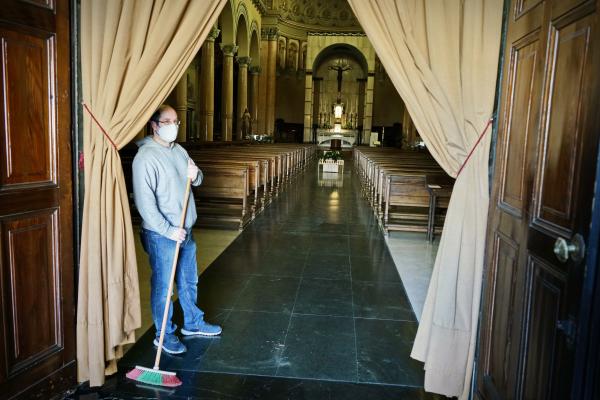May 12, 2020
While states haven’t been imposing restrictions particular to houses of worship, they have thus far been limiting social gatherings, many states restricting groups to no more than 10 people. As they begin allowing gatherings of up to 50 people, and eventually larger gatherings with specific protective restrictions in place, church leaders will be making decisions about how church life resumes.
Read the Full Article

Already a subscriber? Login
